Bakers and their suppliers might be forgiven for pushing sustainability down the agenda as the cost-of-living crisis hits even harder, but for many that hasn’t been the case.
In fact, the financial downturn has focused the attention of some businesses on maximising efficiency and sustainability, although this is no easy task.
“With food and raw materials continuing to skyrocket, bakers and manufacturers are having to navigate many complex priorities right now and trying to limit the impact in the market is a careful balancing act,” says Dawn Foods UK and Ireland marketing manager Jacqui Passmore.
Energy
One of the biggest of these priorities is energy use, with the financial crisis meaning food manufacturers are not only scrutinising energy consumption due to its carbon impact but also its cost. And, with businesses critical of the reduction in support offered in the recently announced energy bills discount scheme, energy is likely to remain a top concern for some time to come.
Glenbervie-based Macphie says improving energy efficiency and reducing carbon emissions are key components of its sustainability goals as it looked to achieve net zero ahead of the Scottish government’s target of 2045. This has included investment in plant to make it more efficient and reduce energy consumption.
“We will also be augmenting our sub-meters across our plant to allow us to drill down further and adequately account for real-time energy use and associated emissions at our factories,” explains Macphie technical director Mark Duncan.
The business plans to use renewable energy wherever possible, which will include the installation of solar panels at the recently refurbished Tannochside factory.
“We acknowledge the need to be more sustainable and our hope is that our energy efficiency programmes will not only cut carbon emissions, but ultimately identify ways we can be more cost effective,” adds Duncan.
Baker & Baker has switched to 100% renewable electricity at its UK sites and has started a project to fully map its European carbon footprint and develop a strategy to achieve net zero. The business will also be publishing a net zero strategy and roadmap later this year.

Decarbonisation
“Decarbonisation and net zero is a sustainability issue that will dominate the industry for years to come, and so it is towards the top of our agenda,” says Baker & Baker European sustainability manager Nicholas Bevan. “We expect to see further legislation at both a UK and EU level that will place legal requirements on business to publish binding targets and updates on progress.”
Businesses point out that decarbonisation is a complex matter, and one that is often impacted by indirect issues.
As Passmore at Dawn Foods points out: “When battling sourcing and global raw material supply issues, as everyone in the baking industry is at present, reducing food miles and carbon footprint often don’t go hand in hand. This will affect the ability for bakery businesses to consistently make leaps forward in sustainability.”
Carbon emissions are categorised under three ‘scopes’, defined as:
- Scope 1: emissions made directly by a business, such as running its ovens and vehicles
- Scope 2: emissions made indirectly, such as when the energy it buys for heating and cooling buildings is being produced on its behalf
- Scope 3: emissions the organisation is indirectly responsible for, such as buying products from its suppliers.
“Decarbonising the supply chain is a difficult task that we are trying to contend with,” says Duncan at Macphie. “While we are working hard to create targets around Scope 1 and Scope 2 carbon emissions, identifying and reducing Scope 3 carbon emissions is challenging.”
Meanwhile, Richard Smith, owner of paper supplier Food Paper, warns that businesses must not lose sight of other issues.
“Bakers are focused on energy just now,” he says. “However this needs to be normalised and reflected in the financial reckoning and then prioritisation given to the other important sustainability goals.”

Water use
One such goal is water use, and Dawn Foods points out it has reduced its energy and water usage by 10% compared to 2021 levels.
“Water is often an overlooked commodity,” says Bevan at Baker & Baker. “But climate change is having a significant impact on water supply and quality in the UK, and it is a critical ingredient within bakery.”
Baker & Baker was a founding signatory of WRAP’s Water Reduction Roadmap, which aims to ensure that 50% of the UK’s fresh food is sourced from areas with sustainable water management.
“We believe it’s an important industry initiative to help educate and encourage businesses to take action on their water usage,” adds Bevan.
Ingredients
Ingredients sustainability also remains a major concern for businesses and those they supply.
“When speaking to our customers, particularly those in retail, ingredient sustainability, especially responsibly sourced palm oil, cocoa and egg are high on the agenda,” says Passmore.
Dawn uses RSPO certified palm oil in its products, while the cocoa powder in most Dawn chocolate products is Rainforest Alliance certified. The business is also committed to cage-free egg supply and is a member of the EU Beet Sugar Sustainability Partnership.
Passmore’s views are echoed by Bevan, who says consumer awareness of the provenance and sustainability credentials of ingredients remains high.
“There continues to be a shift driven by retailers and brands in using more sustainable ingredients across a broader portfolio of products,” he adds. “For us, soy, cocoa and palm remain the key focuses.”
He adds that Baker & Baker has replaced its previous ‘silo’ approach to sustainability challenges with an overarching strategy that touches all areas of the business.
“Some commonly used bakery ingredients contain small amounts or fractions of palm oil or soy, for example,” he says. “It can be challenging to fully establish the sustainability credentials or sourcing locations of these fractions, and so working with our supplier base to gain better visibility is an ongoing challenge.”

Packaging and plastics
Packaging and plastic use remain high on the list of industry and consumer concerns.
Recyclability is expected by many customers in retail and foodservice, and Dawn points out that 82% of its packaging is recyclable or re-usable, and that the business is committed to increasing this.
While single-use plastics made something of a return during the pandemic, their use is now reducing again. The UK government last week announced that a ban on some single-use plastic items including cutlery, plates and bowls will come into force from October. This brings England into line with Scotland and Wales, which implemented similar bans in 2021.
And last October, in a move it described as “rewinding the clock back to the days of traditional bakeries”, Tesco revealed it would be removing 33 million pieces of plastic from loaves of bread and doughnuts, and reducing the plastic used to pack breakfast pastries by more than 120 tonnes each year.
Passmore points out that interest is growing in technologies including compostable and reusable packaging, but these can be difficult to implement because of the importance of hygiene and strict food safety requirements.
Waste
Of course, the issue of waste will remain a core concern for bakers and suppliers despite the huge positive steps taken in this area in recent years.
“With the cost-of-living crisis and more instances of food poverty in the UK, we are putting greater emphasis on food waste in 2023,” says Bevan. “Manufacturers have a responsibility to reduce their food waste, but also to redistribute perfectly edible food to charities and food banks for those most in need.”
Services such as Earth & Wheat, winner of the Sustainability Initiative of the Year award at last year’s Baking Industry Awards, is an excellent example of how the industry can manage the problem.
In fact, all the finalists in that award demonstrate how businesses can reduce their impact on the environment while helping customers to do so. They, like many bakers and their suppliers, are testament to the work the industry is undertaking to improve sustainability despite the considerable pressure on resources.
ADVERTISEMENT: FOOD PAPER
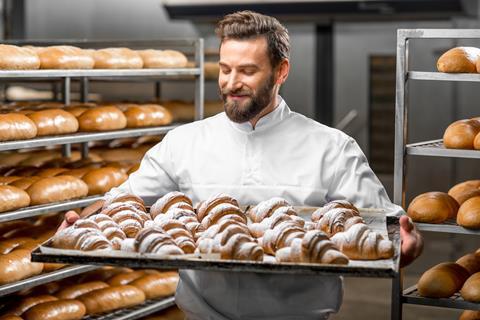
Food Paper is a UK manufacturer of baking paper based in Nottinghamshire. Established in 2017, Food Paper has the largest inventory of direct food contact papers for any application available in the UK today and is focussed on providing speciality solutions for instore bakeries.
As industry experts, with 80 years of combined experience in specifying and converting paper, Food Paper has vast knowledge resources that are used to great effect in providing cost-effective solutions for clients.
Dedicated to sustainable sourcing and supply, 100% of Food Paper’s materials are FSC accredited and all packaging is plastic free.



















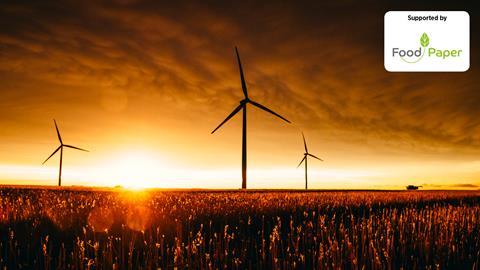
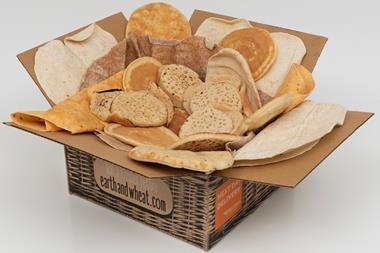
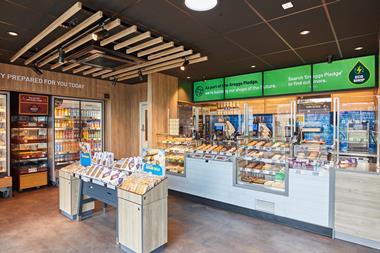
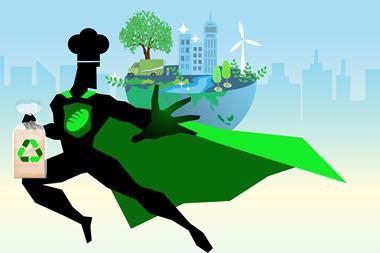
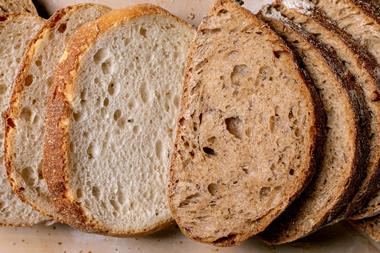
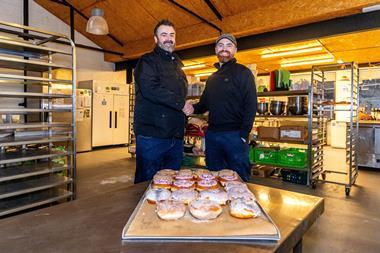
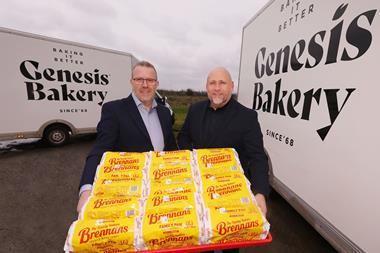
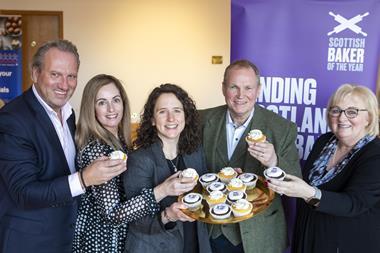


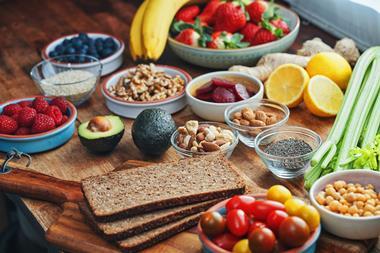



No comments yet